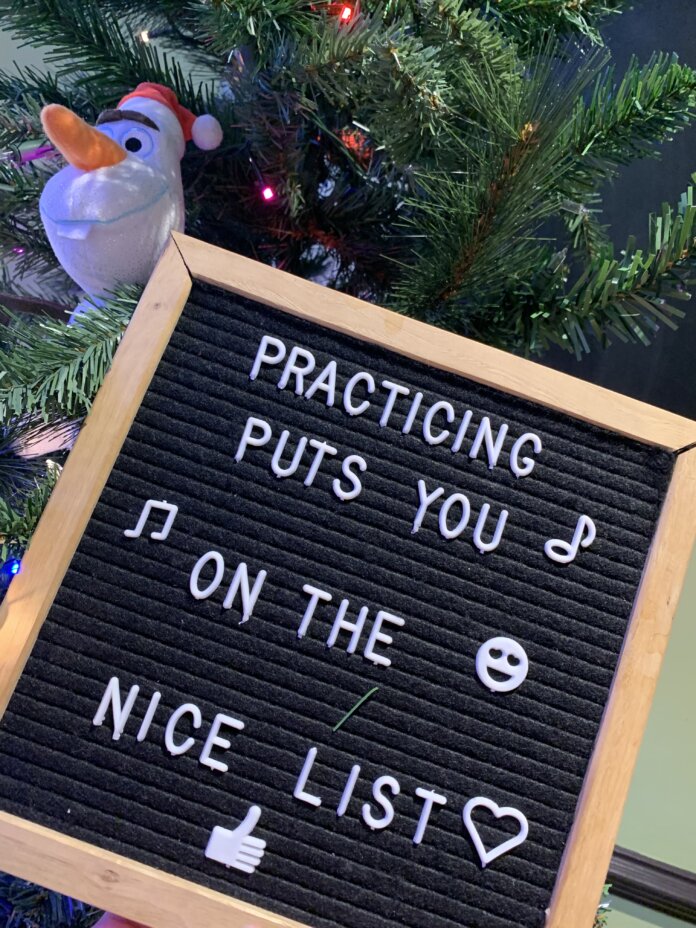Column sponsored by:
Almost everyone can relate to those days of learning an instrument and hearing “you need to practice.” It is so true: in order to progress on your instrument, you need to practice.
But who likes practicing? It’s a phrase we hear time and again in our work – “they don’t like or want to practice.” My typical answer: “I get that.”
And what we hear from students is often “I don’t have time.” As concerning as this is generally, I understand as a working parent of three children exactly what they mean. But the reality is there is definitely time – it just needs to be scheduled.
Practicing is hard work. And as humans, we tend to shy away from this if possible. Learning an instrument is very hard work. Music is a language – it has letters, symbols, phrases…it requires hard work.
Children growing up now have more distractions than I certainly did as a child. For me, practicing was something fun to do because there certainly wasn’t anything on tv – we did not have cable – and there were no devices. So we were either outside playing, or I was inside making music. Now, there are many other options to choose in a home over playing an instrument.
The other challenge that comes up is that practicing is very individual. It’s a unique experience. When they go to hockey – they practice on the ice with their team. They go swimming – practice takes place in the pool. Music practice requires focused time on their instrument in the home setting.
I encourage families to find ways to make practicing a rewarding activity. Here are my best tips for an exceptional experience. The lifelong love of music is worth it!
Tips for a Good Practice Session
- Your Practice Space should be in a clean area. Bedrooms are not preferred.
- Start with Technique or Drills – a warm-up of scales, sight reading, etc.
- Dive into Tricky Parts – Identify tricky sections and play them repetitively
- No Tech Devices unless you are using it for a metronome or musical reference
- End your session with a Reward – play a couple of pieces you know well
- Morning Practice is the BEST if possible – our brains work and retain best in the morning
What is Not Considered a Good Practice Session
- Only playing the pieces you know well
- Setting a timer, shuffling through pages, getting a drink…timer goes off – practicing is over! You get the idea 😉
- Practicing on your bed, or “comfy” area
- Complaining for 20 minutes until the time passes and parents threaten to pull you out of music 😉
Treat practicing the same way you treat going to a sports practice. The biggest difference is the scheduled practice times need to be set by the student and family instead of heading to a designated sports facility.
I recommend 3-5 sessions per week depending on your skill level. Beginners can be as little as 5-10 minutes; more experienced players should be aiming for 30+.
You may need to put rewards in place – perhaps they do not get “screen time” until their music practice is complete. Music practice should not come off as a punishment, so be careful on how you present this at home.
Practice is necessary to hear and feel progression. We see a massive difference in students who come in with practice minutes under their belt as those who have not had that opportunity – in musicality & confidence. We all have tough weeks. Sometimes it doesn’t work out. But setting goals and trying to stick to them is the best life approach at a minimum.
Happy Practicing!
Column sponsored by:







